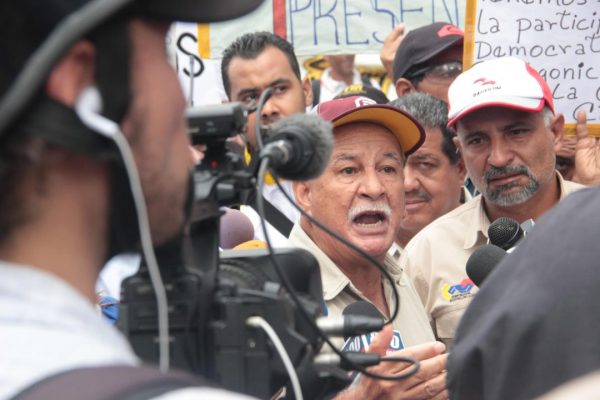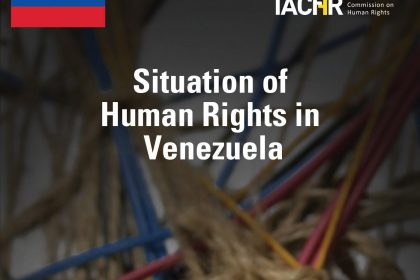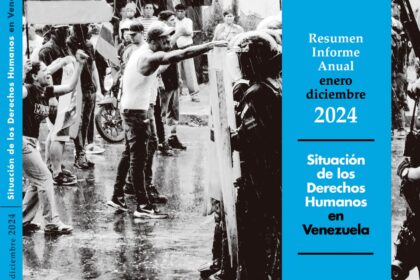On the 30 of September, the ILO Commission of Inquiry on Venezuela has published its report. According to the Commission, its recommendations must be implemented without further delay, and their implementation completed no later than the 1 of September 2020. The Commission was established in March 2018 under article 26 of the Constitution of the ILO “to examine a complaint presented on June 2015 by 33 Employers’ delegates at the International Labour Conference. The complaint referred to non-observance of the Minimum Wage-Fixing Machinery Convention, 1928 (No. 26), the Freedom of Association and Protection of the Right to Organise Convention, 1948 (No. 87), and the Tripartite Consultation (International Labour Standards) Convention, 1976 (No. 144), and alleged, in particular, acts of violence, other attacks, harassment, aggression and a campaign to discredit the employers’ organization, FEDECAMARAS, including its leaders and affiliates, as well as interference by the authorities, a lack of tripartite consultation and exclusion from social dialogue. The complainants added that these problems also affected workers’ organizations that are not close to the Government.”
The following are the main aspects of its conclusion, according to the summary of the referred report:…
“In general, the Commission’s conclusions highlight:
(i) persistent and serious harassment in the activities of FEDECAMARAS and its affiliates, as well as of workers’ organizations not close to the Government; and a situation of impunity in relation to acts of violence, threats, persecution, stigmatization and intimidation, as well as other violations of civil liberties, suffered by its leaders and members;
(ii) practices of favouritism and the promotion of parallel organizations, and of discrimination against, the replacement of and interference in the activities of employers’ and workers’ organizations that are not close to the Government, and interference in the relations between employers and workers, all of which are in violation of the guarantees set out in Convention No. 87; and
(iii) non-compliance with the requirement for tripartite consultation on the fixing of minimum wages (Convention No. 26), obligations of and on issues related to promoting the application of international labour standards (Convention No. 144), as well as the absence of genuine social dialogue, as advocated by ILO standards.
In light of the problems identified, the Commission of Inquiry is making recommendations with a view to ensuring compliance with the Conventions covered by the complaint and in relation to the issues raised, and particularly freedom of association as a basis for tripartite dialogue for the achievement of national reconciliation, sustainable economic development and social justice. Specifically, the Commission recommends that the authorities concerned take the necessary steps to ensure:
(1) the existence of a climate free from violence, threats, persecution, stigmatization, intimidation or any other form of aggression, in which the social partners are able to exercise their legitimate activities, including participation in social dialogue with full guarantees. In particular, the Commission recommends:
(i) the immediate cessation of all acts of violence, threats, persecution, stigmatization, intimidation or other forms of aggression against persons or organizations in relation to the exercise of legitimate employers’ or trade union activities, and the adoption of measures to ensure that such acts do not recur in future;
(ii) cessation of the use of judicial proceedings and preventive and non-custodial measures, including the subjection of civilians to military jurisdiction, for the purpose of undermining freedom of association;
(iii) the immediate release of any employer or trade unionist who is imprisoned in relation to the exercise of the legitimate activities of their organizations, as is the case of Rubén González and Rodney Álvarez;
(iv) the independent investigation without delay of all allegations of violence, threats, persecution, stigmatization, intimidation and any other forms of aggression that have not been duly elucidated, with a view to clarifying responsibilities and identifying the perpetrators and instigators, while ensuring the adoption of appropriate protection, penalization and compensation measures; (v) the adoption of the necessary measures to ensure the rule of law, and particularly the independence from the executive authorities of the other branches of State authority; and
(vi) the organization of training programmes with the ILO to promote freedom of association, tripartite consultation and social dialogue in general, including on full respect for its essential conditions and basic rules, in accordance with international labour standards. These programmes should respond to the specific needs of the various actors and be targeted in particular at public authorities and officials, as well as workers’ and employers’ organizations.
(2) full respect for the independence of employers’ and workers’ organizations, particularly in relation to the Government and political parties; and the suppression of any interference and favouritism by State authorities. The Commission also encourages the social partners to take any measures at their disposal to preserve the independence of their organizations in defence of their members’ interests. The Commission therefore specifically recommends, in consultation with the representative organizations:
(i) the adoption of the necessary measures to ensure in law and practice that registration is a mere administrative formality and that in no event can it imply previous authorization, and to proceed to the immediate registration of the ASI confederation;
(ii) the elimination of “electoral abeyance” and the reform of the rules and procedures governing trade union elections, so that the intervention of the CNE is really optional, does not constitute a mechanism for interference in the life of organizations, the pre-eminence of trade union independence is guaranteed in election processes and delays are avoided in the exercise of the rights and activities of employers’ and workers’ organizations;
(iii) the elimination of any other use of institutional machinery or types of action that interferes in the independence of employers’ and workers’ organizations and their mutual relations. In particular, the Commission recommends the adoption of any necessary measures to eliminate the imposition of control institutions or mechanisms, such as Workers’ Production Boards, which may in law or in practice restrict the exercise of freedom of association;
(iv) the establishment, with ILO assistance, of criteria that are objective, verifiable and fully in accordance with freedom of association to determine the representativeness of both employers’ and workers’ organizations; and
(v) in general, the elimination in law and practice of any provisions or institutions that are incompatible with freedom of association, including the requirement to provide detailed information on members, taking into account the conclusions of the Commission and the comments of the ILO supervisory bodies.
(3) due and effective compliance with the consultation requirements set out in Conventions Nos 26 and 144, and the ending of the exclusion from social dialogue and consultation of FEDECAMARAS and trade union organizations that are not close to the Government. In particular, the Commission recommends, through tripartite dialogue with the representative organizations of employers and workers:
(i) the establishment of effective tripartite consultation procedures. In light of the serious deficiencies in social dialogue in the country, taking into consideration the recognition by the Government itself of the need to create mechanisms for social dialogue, the Commission advises the establishment in the very near future of bodies or other institutionalized procedures for social dialogue to facilitate compliance with the obligations set out in the Conventions covered by the complaint, in relation to both the fixing of the minimum wage and consultations to promote the application of international labour standards; and
(ii) the institutionalization of dialogue and consultation covering the subjects envisaged in all ratified ILO Conventions or relating to their application. In this regard, the Commission recommends the submission to tripartite consultation of the revision of the laws and standards that give effect to Conventions, such as the Decree with the rank, power and force of the Basic Labour Act (LOTTT), which raise problems of compatibility with Conventions in light of the conclusions of the Commission and the comments of the ILO supervisory bodies”.
The entire report can be consulted at this link








